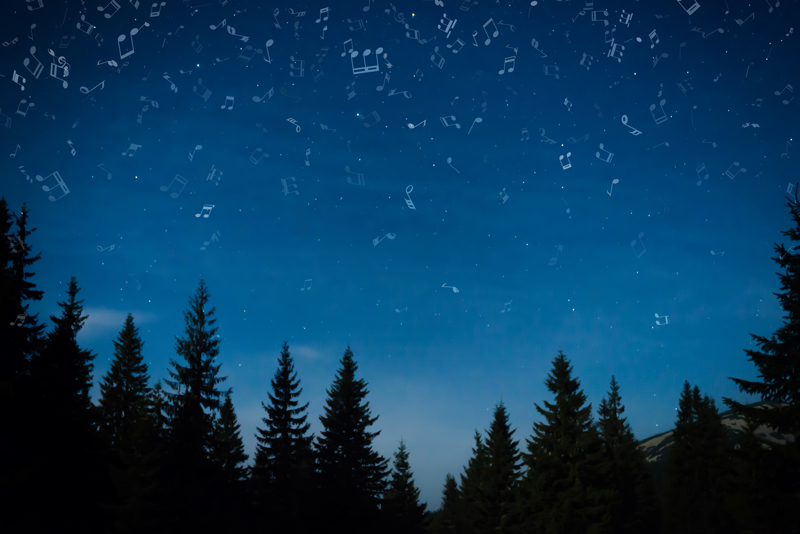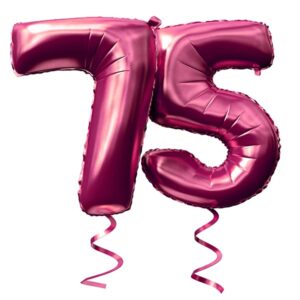The Biblio File February 2024 Essay: Wait for the Wagon
 Wait for the Wagon
Wait for the Wagon
One of my most vivid memories is when I was six, and Miss Wait, my first-grade teacher, stood at the front of our class in her prim, beige shirtwaist dress and smooth, dark hair and told us to write our names on the lined notebook paper on our desks.
I lit up. I loved to put things on paper. My sketches filled the blank pages of the books I read voraciously. Drawings of girls’ faces surrounded by curly hair, with names above the faces. “Trixie” was one of my favorites. I wanted to be Trixie.
And I’d seen how my father wrote his name, a cross between printing and script, letters that jumped off the page. I’d write my name like Daddy wrote his, I thought, and add some flourishes of my own.
I scrawled my name—Carol Jane Messer—with my no. 2 pencil. I put curlicues on the C. My S’s, to my delight, looked like seahorses. The last letters of each word kicked up at the ends. It was a picture of a name. I waited, as Miss Wait made the rounds, examining and commenting on each one.
I felt her presence. Saw her lean toward my paper. I jumped, startled, as she jabbed her pencil in the air and said, “No No No No!”
I went still.
“No,” she said, her eyes serious, her face tight. “That is not how you form those letters. Now, you practice till you can be neater.”
I withered. Just sat there, limp. In less than a minute, Miss Wait flattened me.
And, of course, I developed my own critical finger that shook in my face, taunting—not good enough, not good enough, not good.
Not good enough keeps me on the couch doing NY Times Connections instead of upstairs writing. It makes me gape in awe at the incredible novel I just finished reading, figuring there’s no reason to write one myself if it can’t be that brilliant. It makes me Google “Do novels help the people who read them?”, hoping I can justify sitting at my computer rather than be out saving the world.
Thank goodness for Miss Campbell, our choral music teacher, who swayed back and forth in her light blue shirtwaist dress as she directed us singing Wait for the Wagon approximately fifty times during the school year. Our voices didn’t exactly zing with perfection, but Miss Campbell didn’t squelch our enthusiasm. “Yes!” she’d holler, as we let our voices rip. “Put it out there!” I remember smiling and feeling something like hope as I belted out, “Wait for the wagon and we’ll all take a ride!”
Miss Campbell isn’t afraid to take on Miss Wait. Miss Campbell tells me to look at the tile on my desk that reads EVEN IF IT’S CRAP, JUST GET IT ON THE PAGE. She reminds me of my awards and publications. She tells me to not give a rip that one of the first rules of writing is “Don’t write about writing.” Just put it out there! she says.
We all had/have Miss Waits in our lives. I’m so grateful for the Miss Campbells who help us get on our creative wagons, even if we sometimes have to wait a bit. The ride is worth it.
The Biblio File November 2023 Essay: Upping My AQ
 Upping My AQ
Upping My AQ
When Ed and I first saw the house we’d eventually buy, a two-story grey house smack dab on the Middle Fork of the Snoqualmie River, I looked over the back fence, where the river gleamed as it rushed by, framed by cedars, Douglas firs, cottonwoods, alders, vine maples, and prolific ferns, and I heard the ever-present river sound, soft and strong. I hadn’t yet been inside the house, nor stepped into the yard, when I said, “Oooh, Could we have This?”
After twenty-three years living at and in This, one of my favorite parts of it is the wide gravel trail that runs past our house. Every shade of green gleams around me as I walk, with rich color from blossoms and weeds and wildflowers. It changes with the seasons, and there is no telling what I’ll see—a pygmy owl staring from a tree limb, or red Autumn leaves as big as my face, or a row of horsetails so spiky I can hardly believe they’re real.
Lately I’ve been struck hard on several walks, overcome by the magnificence around me, at how amazing it is that we are created with these five senses, AND that our world is overflowing with things that connect and interact with those senses. The orange and yellow on that quivering leaf delights my eyes, and the waft of whatever that minty thing is makes my nose so happy, and when a telephone bird shrills, my ears wake up and take notice. It’s like they belong together, and it blows me away.
Last month, I was taken by The Sun Magazine’s interview with Dacher Keltner, professor of psychology at UC Berkeley, titled, “No Small Wonder—On the Science of Awe.” Though Dacher elaborates beautifully on the components and processes that are central to our experiencing awe, he sums them up with, “Simply put, awe is the feeling of being in the presence of a vast mystery.”
He describes the study in which subjects were instructed to take “awe walks”, in contrast to a control group who also walked but were not directed beforehand to cultivate awe. The subjects purposely seeking and experiencing awe reported less stress and increased positive emotions. They smiled more in the photos they took, and, in their photos, became increasingly smaller in relation to the landscape. They were more taken with “the vast mystery” than with themselves.
I figure my IQ’s cemented in place, but I do want to keep upping my AQ—my Awe Quotient, the extent to which I live in that awed place. All I have to do is look out my window at This. At the shower of falling yellow leaves as far as I can see. At the osprey, perched still and watchful on the towering cedar. At the morning mayfly hatch so thick it’s a swarm.
Awesome.
#
The Biblio File August 2023 Essay: A New Song
 A NEW SONG
A NEW SONG
Change that involves leaving people and places I’m attached to, has always been, for me, a stressful mixture of sadness and untethered anxiety. Ed and I recently left the church that’s been a major part of our lives for seven years, and though I don’t regret the decision, I’ve been lost as to what I’ll do next.
“Ah, a new era,” a young friend said, and then we talked about how his use of “era” differs from mine. I, like most Boomers, think in terms of historical eras—the Victorian era, the Shakespearian era, the Great Depression era, etc. “Era,” for the young’uns, loosely means a period or phase of life characterized by some activity or emotional state. “My confused era.” “Her traveling era.” “His money- making era.” Ones eras, in that sense, are temporary and subject to change. I like the usage, but “era” didn’t quite fit my state of mind.
The other day, Ed and I were sitting on stools at the cedar bar overlooking our river, wondering how we’ll spend our time now, whether we’ll travel and rent out our house, and, if so, how we’ll continue to give back to the world. Ed, who reads prolifically, said, “Maybe we can learn from the Australian Aborigines’ view of things.”
I listened as he told me about how Australian Aborigines see everything in the framework of music, and how, over the years, we move from some song lines in our Life Song and go on to new ones. And, as the river rushed its river sounds and a kingfisher flew up into a cedar tree, and a breeze fluttered the leaves of the cottonwoods, my whole framework shifted. A new song line. I felt my shoulders relax. I imagined a limitless sky with song notes for stars. I felt hope.
As I think back on my oh so many song lines, I smile at the fun-loving, feisty, little girl song line, and feel a little sick when I picture the exhausted, down the booze tubes line, and grateful when I remember the recovery, get your life back one. I feel wonder at the years I sang the work all the time (yep, three or four jobs at a time) song and great appreciation for that blessed retirement line and the second wind social activist one. I think of how both the right choices and the mistakes I’ve made have led me to the next right thing.
And I remember what I said to Ed when we moved to the Northwest, and again, when we decided to buy a house, and again, when we decided to go into private practice, and, again, when we decided to retire—“God didn’t bring us this far to drop us on our asses now.”
Truly. She/He will not. And I believe I’ll be provided with my new song line, one that gives back to the world, while it resonates in my heart.
I’m listening.
#
The Biblio File July 2022 Essay: Catching Up

CATCHING UP
A couple of months ago, after telling Ed I feared I’d taken on too much volunteer work, I watched myself, as if I were a character in a movie, pick up my phone and begin organizing a fundraiser for Ukraine at my church. For the next six weeks, I spent close to every waking moment and a chunk of my nighttime ones immersed in figuring out the oh so many moving parts, in a role I’d never played before.
During my planning, I turned seventy-five. Three quarters of a century old. Given my past proclivities for things likely to lead to an early death, I thanked God and my caring husband for helping me change course in my mid-thirties to living life rather than destroying it. Ed and I took a brief trip to Astoria, Oregon to celebrate, and, though it was fun, I spent a chunk of time working on the fundraiser rather than, as I’d planned, writing in my motel room while looking out the window at ships on the Columbia River.
The takeout dinner fundraiser was a sweet success, raising significant money for Ukraine and bringing together volunteers from the church and surrounding community. I relaxed for maybe two days and then went back to planning events for the Inclusion Committee at church, working with my thirteen-year-old mentee, cooking for the Homeless Shelter, taking voice lessons and singing “June is Bustin’ Out All Over”, and beginning a new project—podcasts centered around how authors can write characters of other races authentically and respectfully. Whew.
I used to teach Erik Erikson’s theory of psychosocial development and was telling another retired therapist friend that it feels strange to now be in the last stage, “Maturity”. I had forgotten details of the Maturity stage, so I refreshed my memory. According to Erikson, “Integrity v. Despair” is what I should be grappling with in this final stage. “Have I had a satisfying, productive life with few regrets?” or “Am I regretful, unfulfilled, scared of death?” If the conflict is resolved successfully, then the Mature person acquires “Wisdom.” Yep, that I remembered.
What I didn’t remember is that, according to Erikson, the Maturity stage starts at age sixty-five. Ten years ago, for me. Seriously? With my extensive volunteer work and church involvement, the love of children and grandchildren I’ve adopted as my own, and my passions for reading and writing and watching films of all sorts, I act a whole lot more like I’m in the stage prior to Maturity.
The Generative stage, Erikson calls that stage, in which we create or nurture things that will outlast us, often by having children or effecting beneficial change for others. That fits better. But, though I’m not a stickler for the “accuracy” of developmental theories nor the time frames that accompany them, I’m still curious as to why I’m ten years behind in my psychosocial development.
As I’ve pondered, I remembered something I first heard in 1985, the year I sobered up. According to the folks at AA, alkies don’t develop emotionally while they’re drinking. So, numbed and scrambled by substances, my development halted for quite a while and then, in sobriety, has been working ever since to catch up.
And then, I had another memory. I was around thirty, shopping for beer and other essentials at the Jitney Jungle grocery store in Jackson, Mississippi. Hungover, mired in misery, facing another night of a sort of awful nothingness, I felt something, seemingly out of the blue, akin to hope, only better. I remember that the lights seemed a little brighter as I stopped pushing the cart, stood still in the aisle, and thought, “What if everything turned out all right? What if I turned out all right? What if I were happy? I could be happy. I could.”
And it did. And I am. With work and good fortune and the help of people who loved me, I found out what it’s like to engage the world in satisfying, often joy-filled ways. And I’m now proud to tell people that I am unashamedly Developmentally Delayed. But that I’m catching up—and eternally grateful.
I hope you’re still reading my writings when I turn eighty-five and announce that I am finally, officially Mature. And satisfied with my integrity. And wise. Very, very wise.
#
The Biblio File March 2022 Essay: The Galaxy Song
 THE GALAXY SONG
THE GALAXY SONG
I still get tickled that I chose Monty Python’s Galaxy Song to perform at my voice teacher’s online Christmas recital. I don’t know what drew me to it, as I hadn’t heard it in ages. But I listened to several arrangements and was particularly drawn to the version by Jim Post with an added “lighten up” ending. Please listen to it here:
Jim Post’s Galaxy Song/Lighten Up
I had several weeks to practice before the recital, which would showcase the talents of about a dozen little kids and one old lady.
With the number of numbers and the dimensions it portrayed, the song was, ahem, challenging, for an old lady who cares a lot about the vastness and beauty of the universe but very little about the quantification of space. I practiced a lot on purpose and even more not on purpose because The Galaxy Song, complete with the “Lighten up” ending, became an intrusive earworm that warbled to me upon my awakening, crooned to me all day, and lullabyed me to sleep at night.
When I was ready enough, Ed videoed my performance. It took, ahem, thirteen takes to get words and notes and intonations and breaths and facial expressions to a place I didn’t hate them. I still sort of hated my facial expressions, but, oh well.
And then it was fun seeing people grin and nod as they watched me perform. Several grandparents were there, watching their little sweeties play piano and sing excerpts from Frozen and Star Wars and Harry Potter, and my Monty Python number fit right in. When the recital was over, I felt satisfied.
But The Galaxy Song earworm didn’t go away. I sang it while cooking and folding clothes and walking up and down the stairs, and I noticed that, over time, singing it seemed to calm me. I’d imagine our universe’s immense expanse of space and time, and I’d feel an overwhelming sense of my own smallness and insignificance–but not in a diminishing way. I became even more aware that, though miniscule in the overall scheme of things, what I put out into the universe is, indeed significant, and does, in fact, make an impact. The song melded with my growing belief in the power of love to win out over hate in the end.
Holding both of those stances at the same time—my minuteness in the overall scheme of things and a belief that I absolutely matter in it, is a fine place for me to be. And, though I still spend more time than I’d like in horror and disbelief at our world’s dis-eases, I treasure the gift The Galaxy Song has been, and am grateful for the peace and resilience I’ve gained from embracing it.
My favorite part is the Jim Post add on to the original song. It reminds me not to grind my teeth, to let my shoulders drop, to turn down the volume of the voices whispering gloom and doom.
Lighten up. There are stars in the sky.
Lighten up. It’s a good question: Why?
But you don’t know the answer. And neither do I.
So, meanwhile, let’s just all lighten up.
#